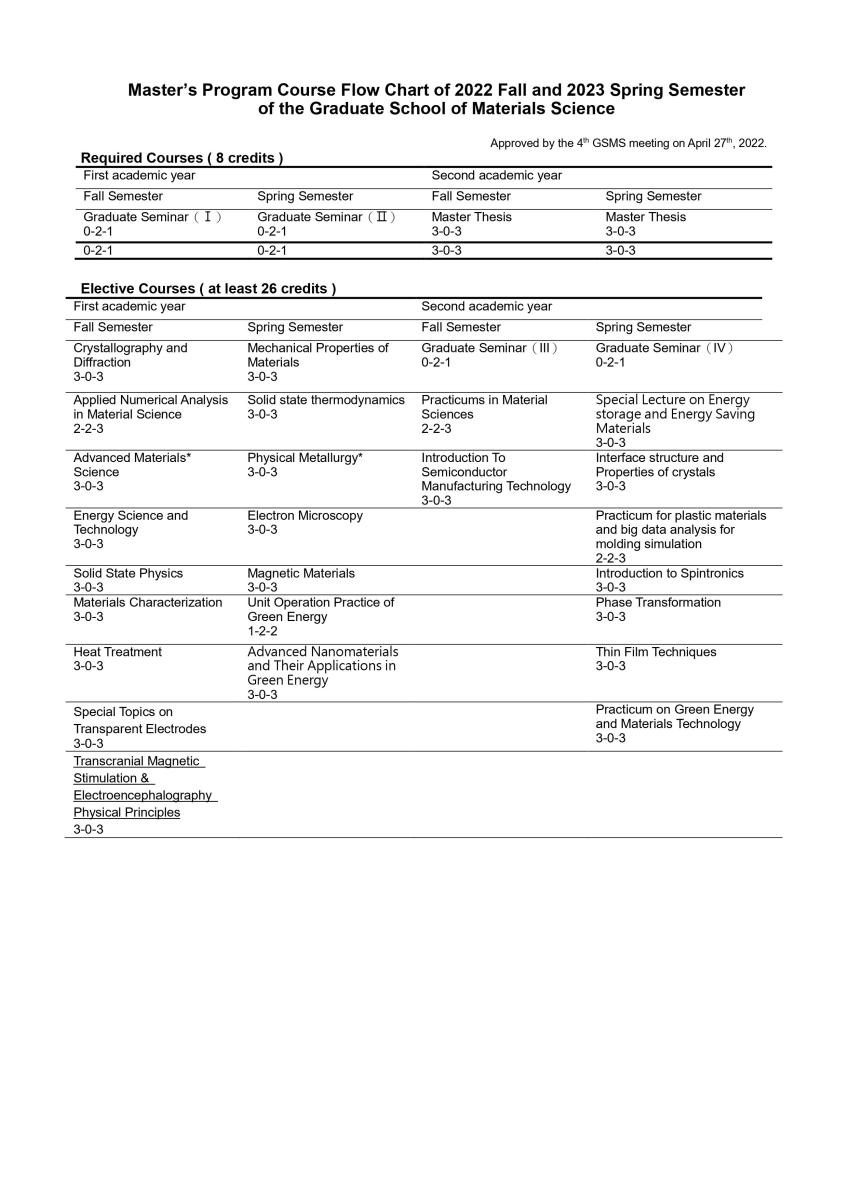Curriculum Planning
The course is mainly planned based on cultivated features of and goals. Our curriculum frameworks are divided into basic materials, testing and analysis of materials, the processes of magnetic materials and green energy materials, and other related professional courses.
- Basic materials : To enable students to understand the basis of materials.
- Testing and analysis of materials : To enable students to understand what relevant skills and knowledge that testing and analysis of materials require.
- The processes of magnetic materials and green energy materials : To help students learn how materials are applied on high-tech industries nowadays to further solve the problems to magnetic materials and green energy materials caused technically.
- Other professional courses : Computational Materials Science makes students who major in Materials Science have capacities for basic numerical analysis and numerical control as to apply nature on the simulation of materials.Patent deployment of materials technology and practical exercises allow the students to win with soft power when they take up an occupation.
Graduation Regulations
-
The minimum graduation credits required for graduate students are 34 credits, including 8 credits of department required courses (6 credits of master's thesis and 2 credits of Graduate Seminar (I)(II)).
- Crystallography and Diffraction" and "Mechanical Properties of Materials" are required courses for graduate students and at least one of them must be passed.
- Advanced Materials Science" and "Physical Metallurgy" are required courses for Non-material undergraduate graduates and both of them must be passed.
- Required courses must be failed twice before taking the summer courses.
- With the consent of the advisory professor, Students can study at most 2 courses from other graduate schools.
.jpg)
